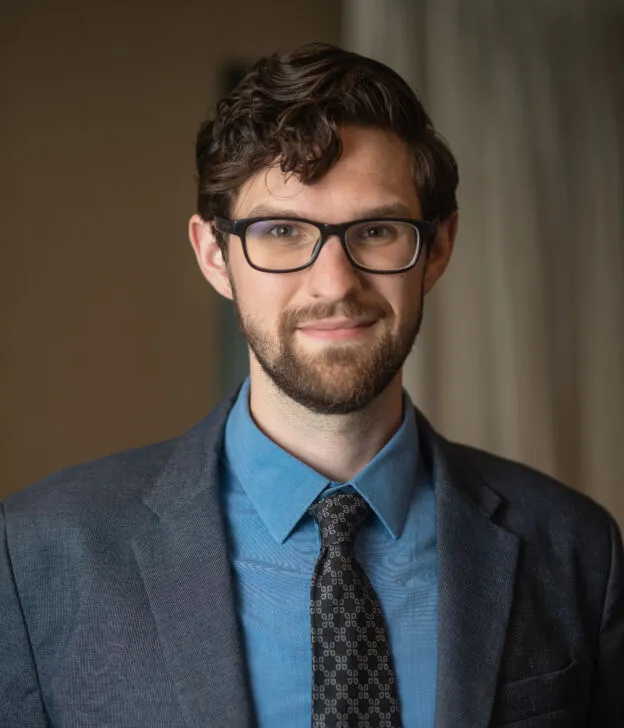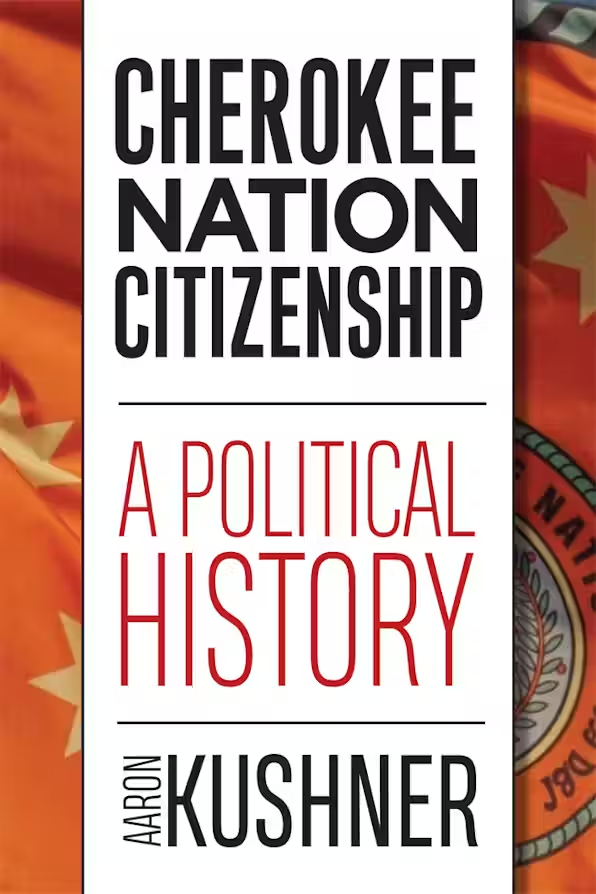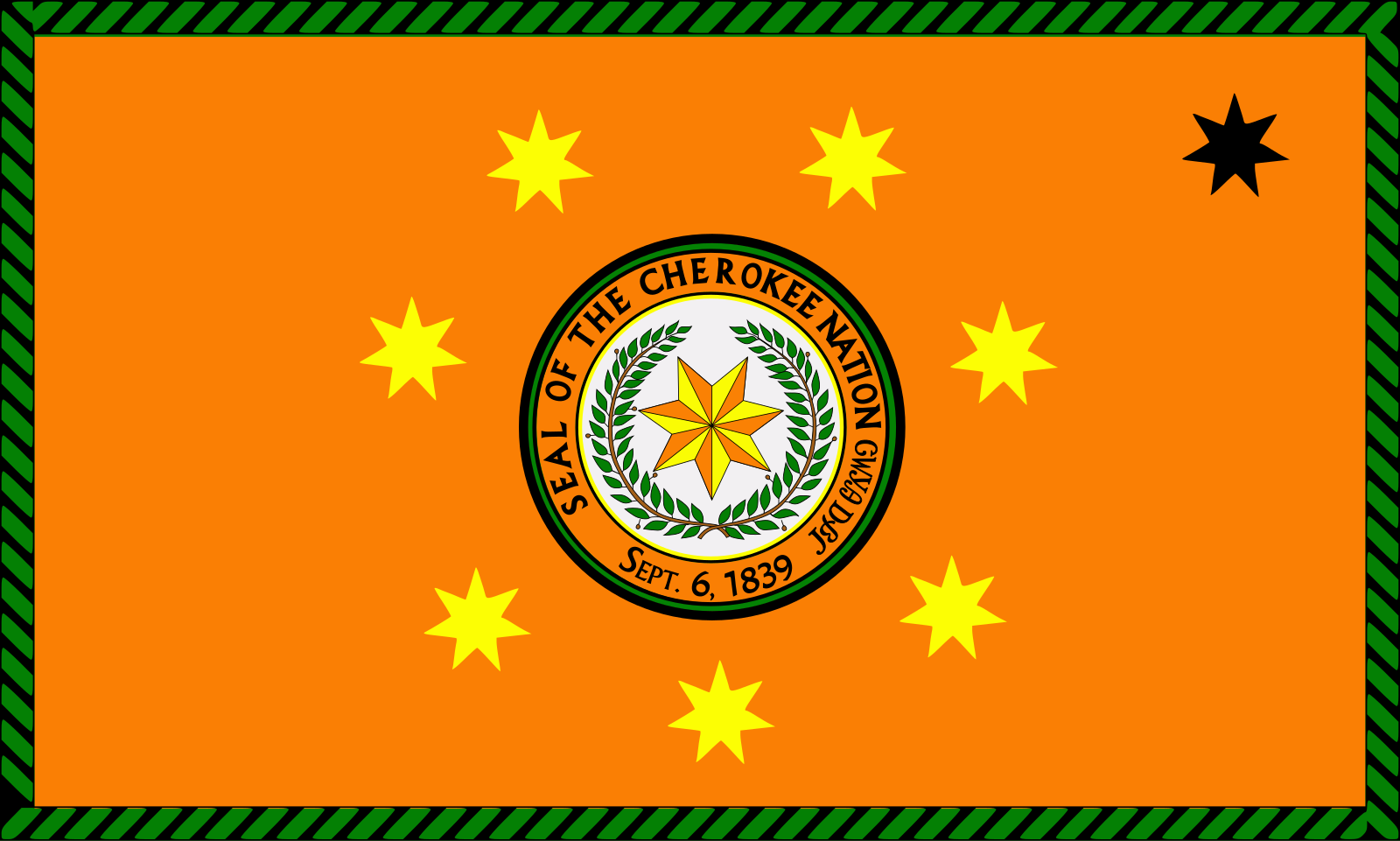
An interview with Aaron Kushner
JMC Resident Historian Elliott Drago sat down with JMC Fellow Dr. Aaron Kushner to discuss his book, Cherokee Nation Citizenship: A Political History (2025). Dr. Kushner is Assistant Professor at the School of Civic and Economic Thought and Leadership at Arizona State University.
ED: What inspired you to become a political scientist?
AK: My mother was a political scientist, finishing her PhD coursework at the Ohio State University when I was born; she ultimately chose to leave OSU to raise my brothers and me, to homeschool us. From her instruction and love I learned what good academic qualities I can claim.
ED: What led you to write your book, Cherokee Nation Citizenship: A Political History (2025)?

AK: In 2017, Kimberly Teehee, former senior policy advisor for Native American affairs in the Obama Administration (who was later in 2019 named the Cherokee Nation of Oklahoma’s official delegate to the House of Representatives) visited the University of Missouri, where I was a graduate student, and led a special discussion in the political science department on Cherokee-United States relations. Teehee’s generous visit with and encouragement to graduate students at Mizzou launched this entire venture.
ED: Why do we need to read your book, Cherokee Nation Citizenship: A Political History?
AK: America is in the throes of a citizenship crisis. We often do not know who we are or what an American citizen is or does. By looking at the development of citizenship in an adjacent regime, the Cherokee Nation of Oklahoma, we may observe first the importance of history, to paraphrase Paul Hunham from The Holdovers—not just as a study of the past but as an explanation of the present. We may also gain a greater appreciation of how nature, time, and place have influenced and continue to influence our lives. Cherokee Nation history can teach us about resiliency, about the importance of culture, and that sustaining a regime ultimately requires that citizens view their citizenship as an activity, as a way of life, and not merely as a statement.
ED: What is the main argument of your book?
AK: Citizenship laws in the Cherokee Nation, when they changed, did so to preserve certain foundational ideas. That is, policies changed to preserve the continuity of core principles. Sometimes these changes were Cherokee Nation innovations; sometimes the United States forced changes upon them that Cherokee Nation leaders adapted to suit their needs. To understand citizenship in a regime, in our neighbors’ and in our own, we must take seriously authentic attempts to live a good life that manifest themselves in living cultures.
ED: What does your book reveal about America’s founding principles and history?

AK: Many Americans, both past and present, like to claim Indigenous heritage or citizenship. The reasons for these claims are diverse, but the impulse is in part driven by a lack of attachment to the United States, or to individual states or communities. There is something attractive for Americans about being descendants from or a part of ancient cultures that have withstood hundreds of years of assimilation and attempts at their destruction. The book points toward a disconnect between individualism and authentic culture in the American tradition. It throws into sharper relief, through a study of Cherokee Nation political history, the problem of smothering competing visions of the good life that breathe life into cultures. The notion that all claims on the good life, and therefore that all cultures, are equally privately meaningful but publicly meaningless is unsatisfying. It seems to be no coincidence that so many Americans see in their citizenship a mere statement of fact, rather than a fulfilling way of life.
ED: What’s one thing you wish that every student knew about the American Political Tradition?
AK: To increase both civic knowledge and civil discourse, I would have students understand that federalism is not just a nice suggestion and that state and local governments are not simply barriers to accomplishing things. Our federal system is grounded in the principle of subsidiarity—local solutions to local problems.
The American tradition contains a belief that local communities can embrace diversity by uniting people who share common geographical and physical spaces in a common cause. A young Abraham Lincoln realized this during his time in Sangamon County: the physical act of building up a community, and maintaining it once established, is a powerful social glue. I hope all students have the opportunity to belong to a tangible community, the rewards of which are well worth the sacrifices it demands.
ED: Thank you for your time!
Elliott Drago serves as the JMC’s Resident Manager of Network Engagement & Resident Historian. He is a historian of American history and the author of Street Diplomacy: The Politics of Slavery and Freedom in Philadelphia, 1820-1850 (Johns-Hopkins University Press, 2022).
